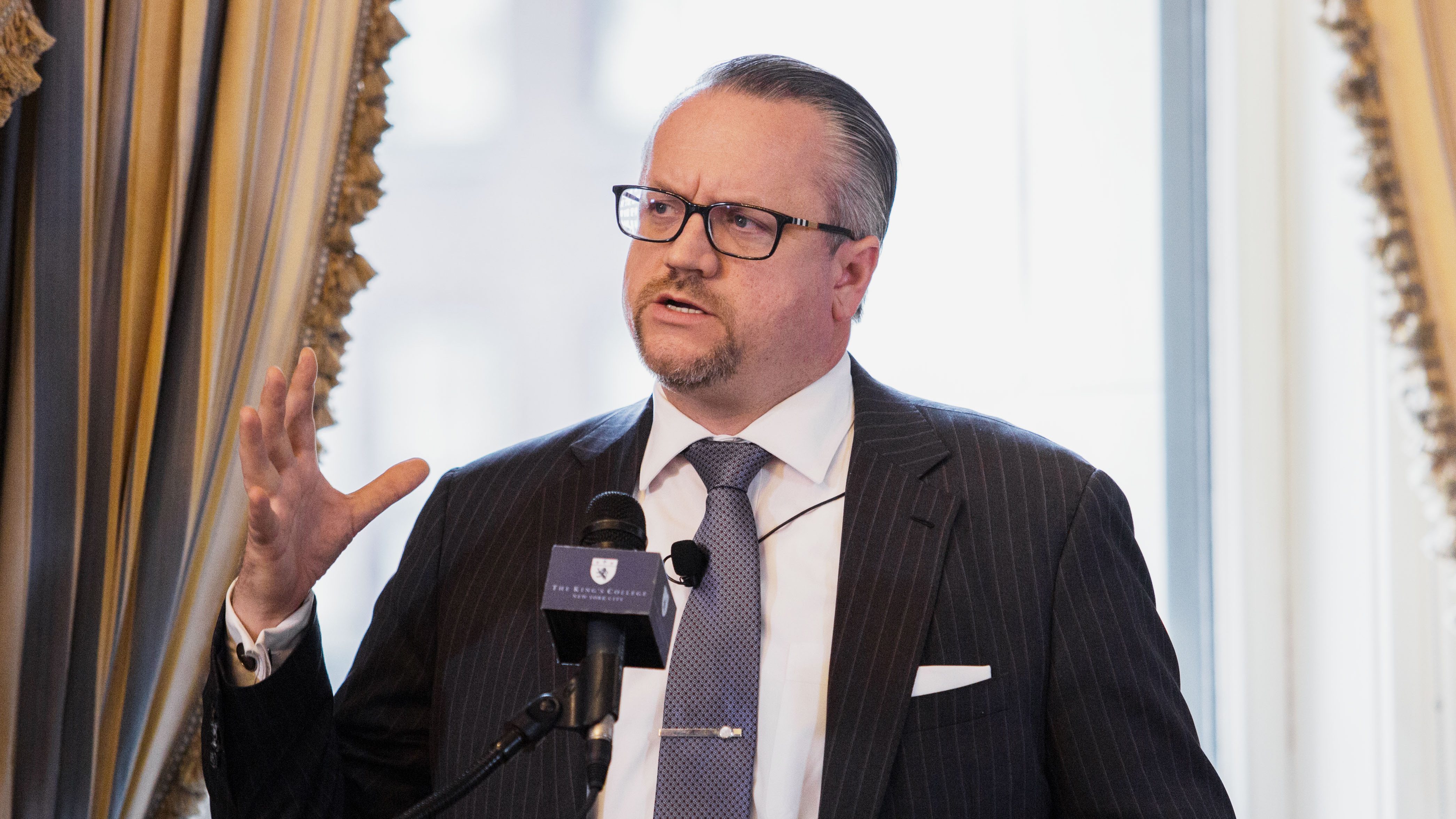David Bahnsen Book Launch: Crisis of Responsibility
On February 20th, The King’s College hosted a book launch and luncheon at the Penn Club in New York City in honor of David Bahnsen’s new work, Crisis of Responsibility: Our Cultural Addiction to Blame and How You Can Cure It.

On February 20th, The King’s College hosted a book launch and luncheon at the Penn Club in New York City in honor of David Bahnsen’s new work, Crisis of Responsibility: Our Cultural Addiction to Blame and How You Can Cure It. Bahnsen recently joined The King’s College Board of Trustees. Acting President Tim Gibson welcomed the guests to the event before turning the podium over to Bahnsen to speak. At the end of his remarks, Brian Brenberg, Executive Vice President and Chair of the Program in Business and Finance at The King’s College, interviewed Bahnsen.
Bahnsen owns and operates The Bahnsen Group, a private wealth management firm based in Newport Beach, California, and recently opened a second office in New York City. “I eat, drink, sleep, and breathe financial markets,” he says. The book was born from his thinking about the 2008 financial crisis, about which he read over 70 books. Unsatisfied by what he read, he called the accounts of the crisis “incomplete” and even “dead wrong.” The narrative surrounding the crisis has been charged with political blame. The left believes the crisis to be the inevitable result of Wall Street greed and lack of regulation, while the right blames the crisis on government housing policies. Bahnsen disagreed with these accounts: “ People on Main Street are stuck as the victim [of the crisis] when they really were a culprit. The crisis was a perfect storm of events underlined by a cultural narrative of covetousness both on Wall Street and Main Street.” The problem in 2008 was more than a financial crisis; it was a moral one as well.
Upon further reflection, both Bahnsen and his publishers saw this problem of responsibility as plaguing many different social and political spheres. The problem undermining many different institutions is an absence of self-government. The Crisis of Responsibility takes up the question of what it looks like for individuals to rebuild personal responsibility in order to construct a more responsible culture. This includes developing a personal doctrine of moral responsibility to inform civics and culture at large. His analysis in the book spans financial markets as well as policy areas such as immigration and housing, and even social issues like technology and smartphone addiction. No public policy will fix either the problems of financial regulation or government housing policy if these changes are being made within an irresponsible culture.
During the interview portion of the evening, Brenberg commented on how provocative the book’s premise is. “Making Main Street the hero would be popular, but you do not do that. Usually, making Main Street the villain doesn’t sell,” he said. Bahnsen replied, “I want to sell books, but I do have a day job.” Brenberg questioned whether the difficulty of being a Christian in the European Union, a post-Christian society, is comparable to the Bahnsen’s identification of the difficulty of being responsible in America, a post-responsibility society.
Bahnsen calls the financial crisis a “me too” moment for responsibility. The Founders organized this nation on the premise of self-government, such that our political system will not operate properly if the component of personal responsibility is missing from the framework. Bahnsen offers practical steps to a way forward in the final chapters of his book. He calls for a change political focus from federal to local government. He believes local governance as it stands is currently sub-par and a weak base to build healthy state and federal policies on. Local governance is the “farm team” for federal and state politics. Making strong local communities is the indispensable foundation of a healthy and responsible political order. Ultimately, Bahnsen claims that moral responsibility cannot be separated from vocation and economic interactions. Reviving moral responsibility is imperative for not only a more efficient, but also more fulfilled America.




